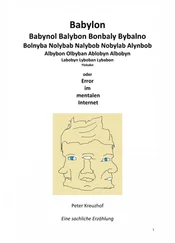Music is the way to a man’s heart — that’s irrefutable. The manager has vivid memories of that from happier days, before Rácz arrived on the scene. Those were the days when the manager, together with the hotel lawyer and his faithful sidekick Ďula, held interviews with prospective waitresses, room maids, and dancers. Then all you needed was a drop of cheap brandy served from an empty Martell bottle, soft lighting, and sweet muted music. Each new female employee soon relaxed and readily gave of her best. Of course, the manager was happy just to let the naked girls ride him like a horse and then whip him with bamboo canes. He would go back to his wife happy and content, while the lawyer and Ďula went on interviewing. No, the manager cannot believe that the stoker could be immune to the magical effect of music.
After the cabaret bar closes, Rácz and Silvia always go to the stoker’s suite. Once there, according to their mood, they screw, or watch a horror film. That much the manager knows for sure: he’s spent many moments in the dark corridor, his ear pressed to the door of Rácz’s suite, trembling with fear of being discovered and grabbed, but at the same time racked by a chilling, unnatural pleasure in his loins and gut. Oh, the manager knows very well the effect melodious music has on lovers, when played in their ears. And that’s what he’ll do. The moment the stoker and his girlfriend disappear into their suite, the manager will be there, in the corridor, playing melancholy, sentimental, romantic tunes. Of course, he’ll be cunningly disguised. And when Rácz, stirred by tears of emotion, comes out into the corridor, too moved to speak, and embraces the unknown troubadour, then the manager will take off his false beard and dark glasses and let himself be recognized. There’ll be no going back: the stoker will have to shake the manager’s friendly hand.
The manager has already practised a few simple songs, soulfully sung to the accompaniment of an accordion or the wistful melodic line of a mouth organ. All he has to do now is to get a big drum with shoulder straps, bells to put round his calves, a car horn, and children’s cymbals. He is content; things are going to plan. He plays his whole repertoire one last time. Soon it’s four in the morning. The bar closes. The manager begins to attach the drum, the accordion, and the mouth organ holder. He glues on a long black beard and puts on some dark glasses. A glance at a shard of mirror assures him that his appearance is changed out of all recognition. He carefully opens the office door and looks outside. There’s no one about. He tiptoes into the hall and goes up the service stairs to the top floor. There he hides behind a corner, waiting for Rácz to arrive. He makes sure he isn’t given away by the untimely ring of a little bell or an unwanted bang on the drum.
Soon the lift stops on the top floor. The stoker and his girlfriend come out and vanish into their suite. The manager hugs the wall and almost stops breathing. He creeps up to the door and listens. He can hear the noise of the shower and their voices. Then the shower stops and he hears the muffled but energetic creaking of the bed. “They’re screwing,” the manager thinks. This is his moment! He attaches the drum strap to his shoe, extends the accordion bellows, silently counts the beat, breathes in and begins:
I used to love a girl
A beautiful dark-haired girl
And now I am waiting
To hear what God will say.
I loved my dark-haired girl,
My beautiful dark-haired girl
And all I got for my love
Was an axe stuck in my back.
The manager pauses, then stops playing. He is listening to the noises from the suite. The copulatory creaking stops for a while. He hears muffled talking. Then the creaking resumes, much more energetically and faster. The manager sings:
My love was true
My love was good
And for that love of mine
I now lie in my grave.
I did not know that today
Is not like yesterday,
And this mistake of mine
Has sent me to my grave
The other rooms are quiet. The hotel guests think that this is another of the stoker’s quirks. Nobody wants to confront him, so they prefer to lie awake and quietly wait for it to end. His hands trembling, the manager draws air into his accordion with a mixture of stage fright and excitement; he wets his lips and goes on singing:
Mother, dear Mother,
Do not cry so much.
I have suffered in the world,
In the grave I’ll rest.
The door of the suite opens violently and Rácz himself appears on the threshold. The manager grows ten inches smaller.
“Who dares to do this?” the stoker shouts and raises his clenched fist like an anti-tank grenade. “Who’s so mad they dare to disturb Rácz?” he asks, but instead of an answer, the manager produces only a monotonous, muffled whimper that seems to come from outside the building. “Who is laughing at Rácz? Who’s trying to take the piss?” And silently deliberating for a moment, the stoker punches the wall. The hotel shakes down to its foundations and the corridor lights flicker. The manager shrinks four more inches. Rácz approaches him and with his steel fingers grabs him by the neck like a rabbit. The manager lets himself be taken silently to the stairwell. Here the stoker stops and pushes him down head first. Instantly, the manager finds himself a floor lower. The stairs down are littered with broken pieces of his instruments. “Once more!” Rácz warns him, “ONCE MORE!” He doesn’t seem to have recognized the manager in disguise. Rácz turns around, enters his suite and slams the door behind him.
The manager stops pretending to be unconscious. He struggles to his feet and feels his arms and legs. He takes the broken and bent drum off his back. He gasps for breath out of sheer mortification and humiliation.
“What’s the meaning of this mess?” A cleaner attacks him. She’s just arrived at work by the first bus and looks down at the manager. “That’s what men would like: make a pigsty everywhere they go! Then women have to come and clean it up, put up with it! Do women exist just for cleaning? Don’t women have any rights? Women want a life, too! Women aren’t work robots! Well, women know about cleaning, of course. But if someone deliberately makes a filthy mess, then he can clean up after himself. Right now, at the double!”
The manager feels his chin and finds that his false beard has come off. He lost his dark glasses when he fell.
“Ah, the manager,” the cleaner notes with joy. “Here’s a broom! At the double! Then you’ll get a bucket and mop. The stairs have to shine!”
Through the windows a chilly and sharp winter sun shines faintly. The rubbish men are banging about in the yard. Rácz peacefully snorts in his sleep, which is always deep a couple of hours before he wakes. In the yellow snow in front of the kitchen are grey boxes of bread and pastries, stacked on top of each other. In the parking lot are barrels of water where the fish are kept. Here and there, a silver fish back surfaces just for a second and vanishes with a powerful splash in the freezing water. The porter Torontál is at his post near the receptionist’s desk and loyally waits for suitcase handles to grab. The receptionist has made his last coffee. He rubs his sleepy eyes, and waits for the morning shift to relieve him. The hotel rooms are dead to the world. Everyone is asleep. The manager is still cleaning up. The remnants of the accordion and the drum had to be taken out to the skip. He’s swept the stairs and corridor, washed them, and now he’s waxing them.
Читать дальше












